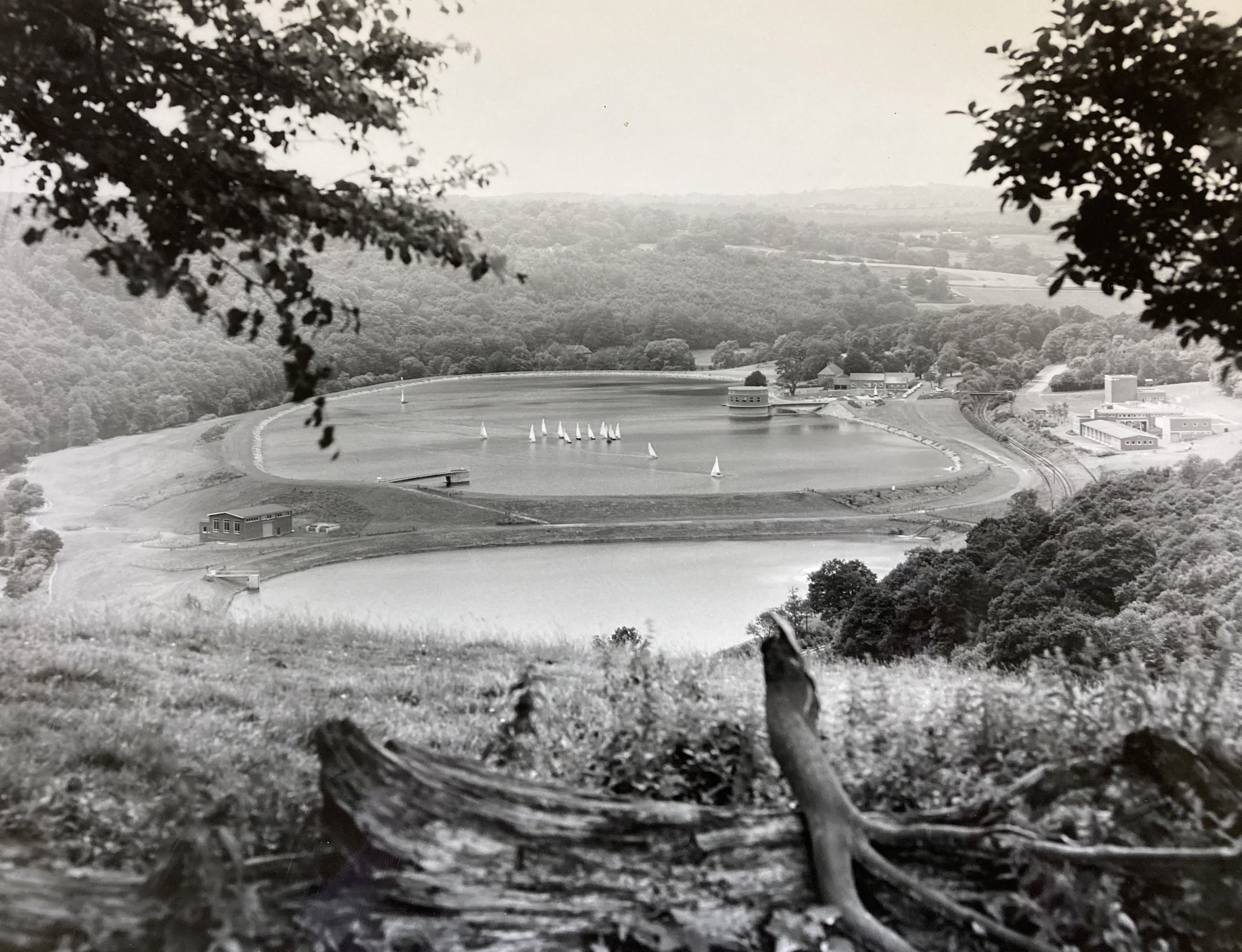
Scammonden Reservoir. Credit: Professor Richard Brook
A team of academics from the Schools of Architecture at the University of Liverpool and Lancaster University, and the Centre for Place Writing at Manchester Metropolitan University have successfully secured £250,000 of funding for an innovative research project on UK reservoirs.
With the Arts and Humanities Research Council’s North West Consortium Doctoral Training Partnership’s inaugural Team-Based Project funding, Professors Richard Brook and Luca Csepely-Knorr with Dr David Cooper will lead the collaborative project entitled Waterborne: The heritage, culture and environment of UK reservoirs. This will recruit three PhD students to work on three distinct but interlinked research projects to create new, rich understanding of the interrelations between design, policy, community memory and the tangible and intangible heritage of water infrastructure.
Two out of the three studentships will be Collaborative Doctoral Awards with industry partners from Historic England and the Museum of English Rural Life, University of Reading. The successful candidates will work as a multidisciplinary research group across the three universities to bring together expertise in architecture, landscape architecture and creative writing.
Using multidisciplinary arts and humanities approaches to research the history, perception, heritage and future of UK reservoirs, the project will also address prescient matters of water security and cleanliness. Water is high on the national agenda and the recent National Policy Statement on water infrastructure highlights the urgency for research in this area to help in developing a more sustainable future and understanding change in the landscapes of infrastructure.

Trimpley reservoir from the Brenda Colvin Collection at the Museum of English Rural Life, University of Reading
Professor Luca Csepely-Knorr from the University of Liverpool School of Architecture said: “We are delighted to receive funding to pursue this project. Landscape architecture played an important part in creating the environment of post-war reservoirs, that are now pivotal resources to tackle the climate and biodiversity emergency. This new cross-university research group will allow us to develop research that will be crucial both from the point of view of history and heritage but also to contribute to more positive climate futures.”
Professor Richard Brook from the Lancaster University School of Architecture said: “This project offers a dynamic and creative opportunity to holistically assess the hitherto hidden cultural, political, architectural and environmental histories of a nation’s vital resource. The novel partnership will undoubtedly yield fresh and exciting perspectives into cross-disciplinary research and practice.”
Dr David Cooper from the Centre for Place Writing, Manchester Metropolitan University said: “From the poetry of R.S. Thomas to the fiction of Sarah Hall, reservoirs figure prominently in the literary landscape. The Centre for Place Writing is thrilled to be involved in this team project which will involve the telling of important new narratives co-created with a wide range of partners and communities. Excitingly, the project will also open up vital new thinking about what it means to do multidisciplinary, collaborative doctoral research.”
Kate Arnold-Forster, Director of the Museum of English Rural Life, at the University of Reading, said: “This project provides an important opportunity to research and re-evaluate major landscape projects of the past and the particular role of reservoir projects in shaping not only the land but also the developing profession of landscape architecture. Given our status not only as an archive but also as a public-facing museum, we particularly welcome the focus on public engagement with the stories of how landscapes have been shaped over time, through not only economic and social forces but by key individuals. Such research relies on a wide range of archival sources, many of which we are privileged to hold in the Museum. Too often in the past, these archival holdings, gathered for different purposes over a long period, have not been brought together to answer research questions. By taking a wider interdisciplinary view, this project will correct that and allow the energy and insight of the PhD candidates to illuminate the heritage of which we are the custodians.”
Erika Diaz Petersen, Principal National Landscape Advisor, Historic England said: “Reservoirs are valued for the resources they provide for people and the environment today, but are deserving of further study as part of our engineering, landscape, architectural and cultural heritage. Historic England is pleased to be a partner on this important project, which will expand our understanding of the policy and design history, cultural associations and environmental role of the nation’s reservoir heritage.”